Charles Sturt faculties and the Teaching Academy support the AHE fellowship.
Here, our recipients share their stories, highlighting their motivations for applying for the HEA Fellowship, the valuable lessons they learned throughout the application process, and their top tips for achieving success.
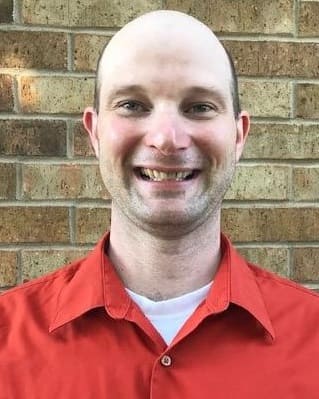
I applied for an Advance HE Fellowship in 2024 so that my contributions/innovation to teaching science over the last decade could be formally recognized. I wanted to build upon the success of receiving one of the Change One Thing Awards from Charles Sturt University in 2023. The Teaching Academy at Charles Sturt University supported my Fellowship journey and set me up for success by assigning a mentor, scheduled regular meetings, provided insightful feedback in addition to a clear timeline. Throughout the application process, I reflected upon my academic career and I was consistently reminded of my responsibility to promote life-long discovery. My top tip is to dedicate a lot of time to write throughout the year.
Dr. David J. Leaver
Lecturer in Biochemistry + SDMS HDR Coordinator
School of Dentistry and Medical Sciences
Faculty of Science and Health
Received in 2025
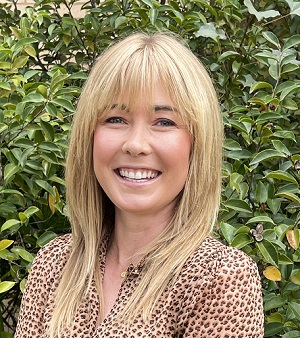
Because my work as a psychology academic tends to challenge the status quo, I think a lot about how and why I teach the way that I do and what this means for my students. In some ways doing things differently can be an advantage because it means you have to articulate why you are practicing the way that you are. A senior colleague suggested I pursue a HEA Fellowship after reviewing my teaching practice. The process of developing pedagogical ideas and practice relies on both thinking and writing, and the Fellowship helped me to examine my approach to teaching and solidify and critique it accordingly.
Accountability check-in sessions with the Teaching Academy were invaluable. It is also necessary to give yourself permission to be flexible when preparing the Fellowship application as it can be difficult to fit additional professional development opportunities like this in around extant commitments. My main tip is to play to your strengths in the application but don’t be afraid to interrogate the parts of your teaching practice that you are not clear about – the best critical reflections often come from confronting the messy parts of your teaching scholarship.
Dr. Rachel Hogg (she/her)
Senior Lecturer
School of Psychology
Faculty of Business, Justice and Behavioural Sciences
Received in 2025
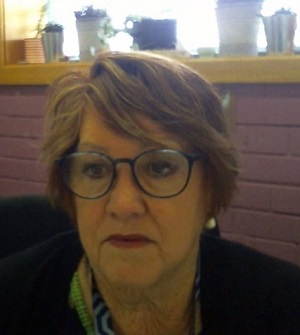
When the Faculty announced that there would be scholarships available for Fellowship applications, I decided that this would be the appropriate time express my interest in making an application. I was awarded one of the scholarships, and the ever-patient Dr Elyce Green as my mentor.
Then the work began. The hardest part of the process was couching my writing in terms of what I have achieved, or will achieve as a result of what I have done, to evidence the “What?” “So what?” “Now what?”
I mapped the various areas of activity, core knowledge and professional values that I would need in my reflective narrative by setting up a grid that I could mark off once I had addressed each one of the three dimensions in my application.
I have a collection of congratulatory emails, students’ remarks and RED awards for work that I have done over the years. These came in handy when I needed evidence to elaborate on my success in various pursuits.
My three top tips are:
Catherine McCarthy SFHEA
Lecturer
School of Policing Studies
Faculty of Business, Justice and Behavioural Sciences
Received in 2024
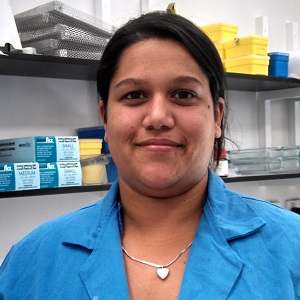
I applied for a HEA Fellowship to demonstrate my commitment to higher education learning and teaching. Through my role at CSU, I am responsible for course coordination and need to consider all aspects of curricula from an assessment, subject and course level. I also oversee the courses’ work-integrated learning and have industry involvement to encourage industrial reform for professional registration and course accreditation.
The FHEA application process did take quite a bit of time to put together but it gave me an opportunity to reflect on my teaching practices and consult pedagogical literature, which enabled me to identify areas I could improve my teaching practice and student assessment. It also made me reflect on specific examples and made me accountable to ensure I had consolidated evidence of my teaching practice. My top tip when applying for a fellowship would be to use the Australian guide given by the HEA, map out key pieces of evidence to the areas of activity before you begin writing and get assistance from members of the Teaching Academy to check your writing style.
Dr. Esther Callcott BMedSc (Hons) PhD GCLTHE FHEA
Head of Discipline for Veterinary Technology
Senior Lecturer in Veterinary Technology
School of Agricultural, Environmental and Veterinary Sciences
Faculty of Science and Health
Received in 2024
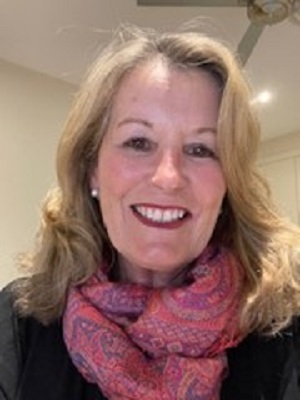
The decision to apply for HEA Fellowship was inspired by the value my colleagues in Australia and overseas placed on, not only the prestige of the award, it was the process of reflection that one undertakes on the application journey. The application criteria which demands reflection on your work, major achievements, the quality and outcomes, the lessons learnt is both a challenge and enlightening.
The content required within the application provides a valuable framework to consciously and honestly reflect on ones approach to workplace responsibilities and importantly, the next steps for continuous improvement. Careful attention needs to be paid to the specified application criteria, ensuring application to the appropriate fellowship level and adherence to the submission guidelines, for example word counts and completed (signed) documents.
Planning ahead to ensure that any input required from other parties is organized well in advance of submission deadlines is a very helpful process. It enables review of the application in a timely manner to avoid missed or incorrect information. Personally, I am exceptionally humbled and grateful to Charles Sturt University for their support of my application. Wishing you all the best on your HEA journey.
Dr Amanda Davies
Senior Researcher in Policing and Security
School Policing Studies
Faculty of Business, Justice and Behavioural Sciences
Received in 2024
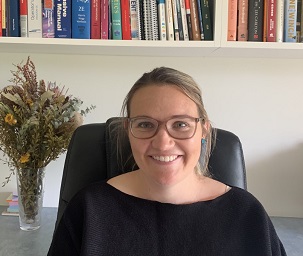
I applied for Senior Fellowship to enhance my connection with the higher education sector and to meet new people. My role is focused on work-integrated learning (WIL), and I thought this might also be a way to demonstrate the significance of WIL as a teaching and learning process. Connecting with the broader higher education community is important for our practice and helpful in identifying where we sit within the bigger picture.
The application process was a lot of work, but it was a great way to reflect on my practice and identify challenges and opportunities. While critical reflection helped me with my application, its also provided me with a platform for future growth. My top tip for applying for fellowship is to talk to people who are familiar with the process and writing style. The application is written in a way that feels very different to other forms of academic writing, so relying on people who have expertise in the process was invaluable!
Dr Elyce Green
Associate Professor in Rural Health
Lead, Rural Health Education
Three Rivers Department of Rural Health
Received in 2024
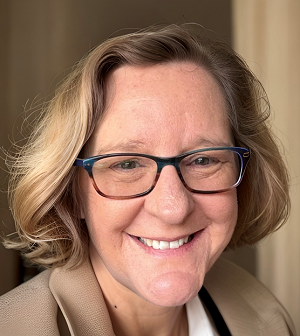
I decided to go for the HEA Senior Fellowship because I've been on this wild ride of teaching in higher education, and I wanted some recognition for it. You know, like a badge of honour! Throughout the application process, I had this 'aha' moment where I realized reflecting on my teaching journey wasn't all about challenges; it was about appreciating how every stumble and triumph shaped me into the teacher I am today.
It hit me hard how important it is to shout about excellence in teaching, not just for the sake of it but because sharing knowledge and fostering awesome learning environments are what it's all about. I mean, seeing those lightbulb moments in students' eyes is priceless! My top tip? Take a moment to sit back and think about your journey. Celebrate the wins, learn from the challenges, and then write it all down like you're chatting with a friend over coffee. Your passion for teaching will shine through, and that's what they're really looking for!
Karen Hayes
Lecturer – Occupational Therapy
School of Allied Health, Exercise and Sport Sciences
Faculty of Science and Health
Received in 2024
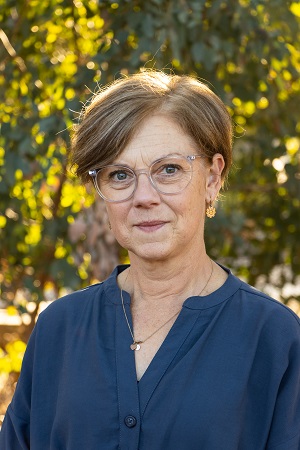
My decision to apply for a Senior Fellowship of the HEA was motivated, in part, by my desire to role model to other staff my commitment to higher education and to ongoing professional development. In my current role as Associate Head of School (Staff Supervision and Development) I believe it is important for me to engage in ongoing development and to participate in activities I am suggesting staff participate in. The application process, including the meetings, writing and feedback, provided me with a valuable opportunities to reflect on the work I have been involved in over the past few years, to think about what I have achieved, reflect on how I have been able to influence others, and consider how my practices have developed in response to my learnings.
I would suggest anyone wishing to apply for a fellowship start collecting evidence early and start writing so there is adequate time to obtain feedback to finesse the final submission. Follow the process and guidelines that will be clearly outlined to you through the Teaching Academy and draw on the expertise of mentors who have been through the process before. My last piece of advice is to be brave – don’t be afraid to share the wonderful work you have done!
Dr Tracey Parnell
Associate Head of School – Staff Supervision & Development
Senior Lecturer – Occupational Therapy
School of Allied Health, Exercise & Sports Sciences
Faculty of Science and Health
Received in 2024
Please fill out this short form, and the Teaching Academy team will collaborate with you to publish your story.
If you have more than one story, please fill out the form as often as needed.